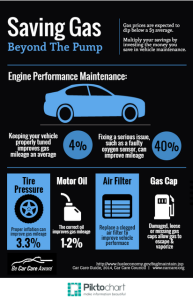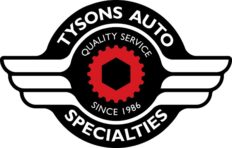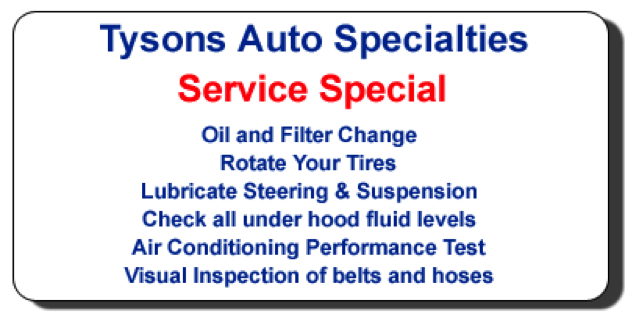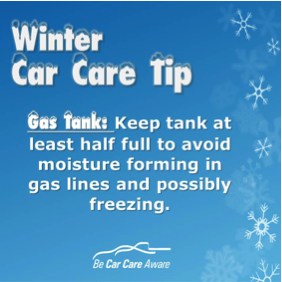As gas prices continue to drop, motorists should take advantage of their savings at the pump and invest it back into their vehicles. By spending a little now to increase fuel efficiency, drivers can multiply fuel savings and save more money at the pump, says the Car Care Council.
The national average of the cost of a gallon of gas has been above $3 since 2010 but is expected to dip below that mark this year, according to a recent forecast by energy information service GasBuddy.com.
“Gas prices are expected to fall below $3 per gallon on average, and that means motorists can count on significant savings at the pump,” said Rich White, executive director, Car Care Council. “A small investment in simple and inexpensive auto care will add up to better fuel economy and even more savings.”
The non-profit Car Care Council encourages motorists to be car care aware and perform simple steps to improve fuel efficiency and save money.
- Engine Performance: Keep your car properly tuned to improve gas mileage by an average of 4 percent.
- Tire Pressure: Keep tires properly inflated and improve gas mileage by up to 3.3 percent.
- Motor Oil: Improve gas mileage by 1 to 2 percent by using the grade of motor oil recommended by the manufacturer.
- Air Filters: Replacing clogged air filters on older vehicles can improve fuel economy and will improve performance and acceleration on all vehicles.
- Gas Cap: Damaged, loose or missing gas caps allow gas to vaporize into the air.
- Fix It: Addressing a serious maintenance problem, like a faulty oxygen sensor, can improve mileage by as much as 40 percent, according to www.fueleconomy.gov.
 In addition to vehicle maintenance, modifying driving habits, such as observing the speed limit and avoiding quick stops and starts, can also increase fuel efficiency.
In addition to vehicle maintenance, modifying driving habits, such as observing the speed limit and avoiding quick stops and starts, can also increase fuel efficiency.
Consolidating trips, avoiding excessive idling and removing unnecessary items from the trunk are also easy ways to lower fuel consumption.
The Car Care Council is the source of information for the “Be Car Care Aware” consumer education campaign promoting the benefits of regular vehicle care, maintenance and repair to consumers.
For a free copy of the council’s popular Car Care Guide or for more information, visit www.carcare.org.



 Brakes are a normal wear item on any vehicle and they will eventually need to be replaced. Factors that can affect brake wear include driving habits, operating conditions, vehicle type and the quality of the brake lining material.
Brakes are a normal wear item on any vehicle and they will eventually need to be replaced. Factors that can affect brake wear include driving habits, operating conditions, vehicle type and the quality of the brake lining material.


